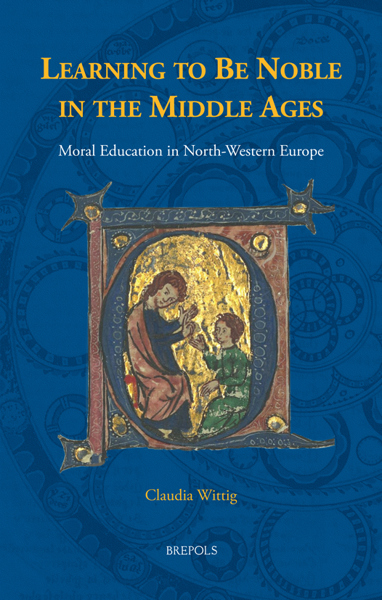Many of the values shared across modern Europe were first adopted by noblemen and -women in the High Middle Ages in order to present themselves as morally superior and thus to legitimise their exalted position. These values were systematically taught to lay nobility and in the process re-negotiated and adapted. This project examines the way instruction of moral values took place, the cultural elites and their networks involved in the process and the role of literature and translation for the instruction. For the first time, this project will explore the complex negotiations of the norms and values which so prominently shaped European value systems until modern days. It employs an innovative approach and a corpus of largely neglected sources to analyze the development of a noble value system. In order to display common strategies and variants of this instruction across North-Western Europe, the project examines moral-didactic texts from northern France, the southern Low Countries, England and Germany. The sources give insight into the moral edification especially of the lower nobility, a group which could hitherto rarely be grasped in historical inquiry. The method integrates textual analysis with a study of personal networks, manuscript transmission and the influence of languages in the codification of norms and values. Thus, the project sheds light on processes of social distinction and will allow for a better understanding of the formation of Europe as a cultural entity.
H2020 - [Pegasus]² Marie Sklodowska-Curie Fellowship
